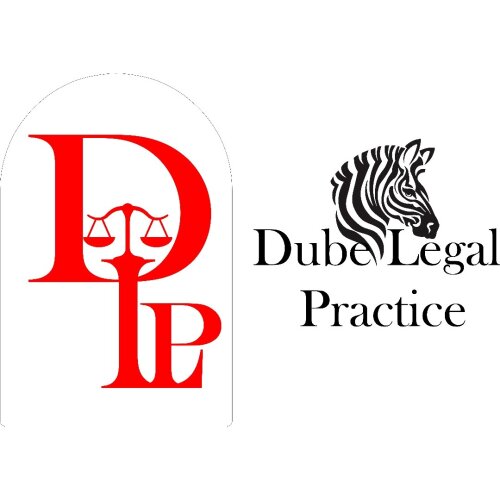Best Oil, Gas & Energy Lawyers in Bulawayo
Share your needs with us, get contacted by law firms.
Free. Takes 2 min.
List of the best lawyers in Bulawayo, Zimbabwe
About Oil, Gas & Energy Law in Bulawayo, Zimbabwe
Oil, gas, and energy law in Bulawayo, Zimbabwe governs all aspects related to the exploration, production, distribution, and use of energy resources including petroleum, natural gas, electricity, and renewables. Bulawayo, as Zimbabwe’s second-largest city, is a hub of industrial activity and has a growing interest in energy infrastructure modernization and development. The legal framework ensures that energy projects comply with national regulations, environmental standards, and international obligations, while also addressing local community interests and investment concerns.
Why You May Need a Lawyer
People and businesses in Bulawayo may require an oil, gas, or energy lawyer for several reasons. Common scenarios include negotiating exploration and production agreements, understanding regulatory compliance, handling disputes with authorities or business partners, and dealing with land rights or compensation issues. As the energy sector grows, legal help is often essential for securing operating licenses, adhering to environmental standards, managing investment risks, and ensuring that all operations are lawful and ethically sound. Lawyers can also assist with contract negotiations, resolving tax matters, and navigating government procurement processes.
Local Laws Overview
Zimbabwe’s legal framework for oil, gas, and energy is primarily governed by several statutes such as the Petroleum Act, the Mines and Minerals Act, the Energy Regulatory Authority Act, and environmental management regulations. In Bulawayo, these national laws are enforced in conjunction with municipal by-laws. Key legal aspects include licensing requirements for exploration and production, land use and compensation regulations, health and safety standards, and environmental protection measures. The Zimbabwe Energy Regulatory Authority (ZERA) plays a central role in licensing, regulation, and monitoring of the energy sector. Laws also mandate community engagement, benefit-sharing arrangements, and compliance with tax and royalty obligations.
Frequently Asked Questions
What permits or licenses are required to start an oil, gas, or energy project in Bulawayo?
You need several licenses, including exploration or production licenses from the Ministry of Mines and Mining Development, and approvals from Zimbabwe Energy Regulatory Authority (ZERA). Environmental impact assessments are often mandatory.
How are land rights managed for energy projects?
Land for energy projects may be state-owned or privately held. Legal procedures involve compensation, negotiations with landowners, and adherence to land acquisition laws outlined in the Land Acquisition Act and Mines and Minerals Act.
Who regulates the oil, gas, and energy sector in Bulawayo?
The Zimbabwe Energy Regulatory Authority (ZERA) is the main regulator. The Ministry of Energy and Power Development oversees overall policy, while municipal authorities ensure compliance with local by-laws.
Are there environmental requirements for energy projects?
Yes, all energy projects must comply with the Environmental Management Act which requires Environmental Impact Assessments (EIAs) and ongoing compliance with environmental standards.
What taxes and royalties are payable on oil, gas, and energy activities?
Taxes and royalties vary depending on resource type and stage of project. They can include corporate tax, value-added tax (VAT), royalties to the government, and sometimes local development levies.
What are common disputes in the sector?
Disputes usually arise over contract interpretation, environmental concerns, compensation for land use, joint venture arrangements, and regulatory compliance issues.
Can foreign investors own energy projects in Bulawayo?
Yes, but there are legal procedures relating to investment licenses and possible restrictions on ownership percentages in certain strategic sectors. The Zimbabwe Investment and Development Agency (ZIDA) oversees these aspects.
What are the key steps to secure funding for an energy project?
Prepare a solid business plan, ensure legal compliance, secure all necessary permits, and approach banks or development agencies with your proposal. Often, government endorsement is critical for large projects.
How long does it take to get project approvals?
Approval timelines vary depending on the type and size of the project. They can range from a few weeks for small-scale energy projects to several months or longer for large oil or gas ventures due to multiple layers of required approvals.
Is renewable energy regulated differently from oil and gas?
While some aspects are similar, renewables often have additional incentives and streamlined processes under Zimbabwe’s renewable energy policies, though they are all regulated by ZERA and subject to local and national laws.
Additional Resources
Several resources are available for those needing guidance on oil, gas, and energy matters in Bulawayo. The Zimbabwe Energy Regulatory Authority (ZERA) provides licensing and regulatory information. The Ministry of Energy and Power Development formulates policy and oversees implementation. The Environmental Management Agency (EMA) offers assistance on environmental compliance. Local law firms with energy law expertise as well as the Zimbabwe Investment and Development Agency (ZIDA) provide investment and legal advice. Municipal offices in Bulawayo can also clarify local by-laws and help with permits.
Next Steps
If you require legal advice or representation regarding an oil, gas, or energy matter in Bulawayo, start by gathering all relevant documents and information about your situation. Contact a local lawyer who specializes in energy law for a consultation. Prepare specific questions to ask and clarify your objectives before your meeting. You may also wish to reach out to relevant government agencies for guidance or assistance, especially if your matter involves permits or regulatory compliance. Acting early ensures you make informed decisions and avoid costly legal or financial complications down the line.
Lawzana helps you find the best lawyers and law firms in Bulawayo through a curated and pre-screened list of qualified legal professionals. Our platform offers rankings and detailed profiles of attorneys and law firms, allowing you to compare based on practice areas, including Oil, Gas & Energy, experience, and client feedback.
Each profile includes a description of the firm's areas of practice, client reviews, team members and partners, year of establishment, spoken languages, office locations, contact information, social media presence, and any published articles or resources. Most firms on our platform speak English and are experienced in both local and international legal matters.
Get a quote from top-rated law firms in Bulawayo, Zimbabwe — quickly, securely, and without unnecessary hassle.
Disclaimer:
The information provided on this page is for general informational purposes only and does not constitute legal advice. While we strive to ensure the accuracy and relevance of the content, legal information may change over time, and interpretations of the law can vary. You should always consult with a qualified legal professional for advice specific to your situation.
We disclaim all liability for actions taken or not taken based on the content of this page. If you believe any information is incorrect or outdated, please contact us, and we will review and update it where appropriate.









